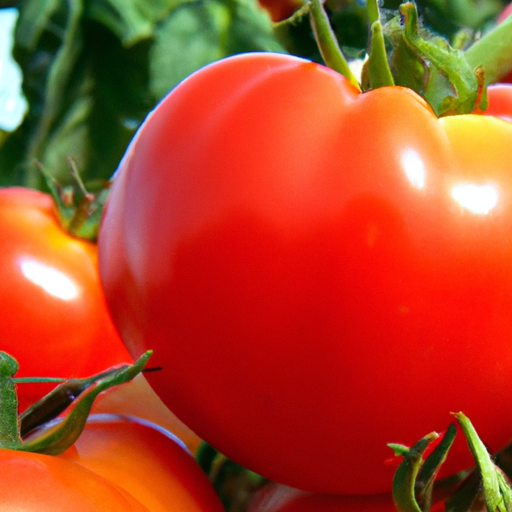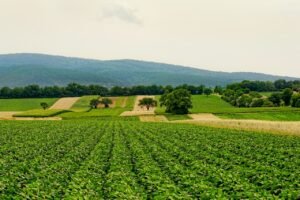
Have you ever wondered about the benefits of organic farming? Look no further! This captivating video guide will take you on an insightful journey into the world of organic farming. From supporting biodiversity to promoting soil health, this video highlights the numerous advantages that come with choosing organic. Get ready to discover the amazing benefits of organic farming in a visually engaging and informative way. Get your popcorn ready and let’s jump into the world of sustainable agriculture!
The Benefits of Organic Farming

Introduction to Organic Farming
Organic farming is an agricultural method that prioritizes the use of natural techniques and materials to cultivate crops and raise livestock. It focuses on maintaining the health of ecosystems, promoting biodiversity, and minimizing the impact on the environment. By avoiding synthetic pesticides, fertilizers, and genetically modified organisms, organic farming aims to provide consumers with food that is not only safe and nutritious but also sustainable in the long term.
Importance of Organic Farming for Sustainable Agriculture
Organic farming plays a vital role in maintaining sustainable agriculture practices. By adopting organic practices, farmers can reduce soil erosion and water pollution. Unlike conventional farming methods, organic farming relies on techniques such as cover cropping, crop rotation, and the use of compost to enhance soil fertility, promote soil health, and prevent nutrient runoff. These practices help to conserve natural resources and preserve the long-term productivity of farmland.

Health Benefits of Organic Farming
One of the key advantages of organic farming is its positive impact on human health. Organic produce is grown without the use of synthetic pesticides, which means that consumers are less likely to be exposed to potentially harmful chemicals. Studies have shown that individuals who consume organic food have lower levels of pesticide residues in their bodies compared to those who consume conventionally grown food. Additionally, organic farming practices restrict the routine use of antibiotics in animal agriculture, reducing the risk of antibiotic resistance in humans.
Furthermore, organic produce has been found to have higher levels of certain nutrients compared to conventionally grown produce. This is because organic farming focuses on improving soil health, which in turn leads to plants that are more nutrient-dense. For example, research has shown that organic fruits and vegetables tend to have higher levels of vitamin C, antioxidants, and minerals.
Environmental Benefits of Organic Farming
Organic farming has numerous positive impacts on the environment. By avoiding the use of synthetic pesticides and fertilizers, organic farmers reduce the contamination of water sources and protect water quality. This is particularly important as contaminated water can pose serious health risks to humans and wildlife.
Moreover, organic farming practices encourage the preservation of biodiversity and ecosystems. Organic farms provide a habitat for a wide range of organisms, including beneficial insects, birds, and soil microorganisms. By promoting biodiversity, organic farmers support the natural balance of ecosystems and contribute to the overall health of the environment.
In addition, organic farming also plays a crucial role in mitigating climate change. The use of organic soil management techniques, such as composting and cover cropping, enhances soil fertility and promotes carbon sequestration. Organic farms have been found to have higher soil organic matter, which helps to reduce greenhouse gas emissions and mitigate climate change.

Economic Benefits of Organic Farming
Organic farming offers numerous economic benefits for farmers and local communities. Due to the growing demand for organic products, farmers practicing organic methods often enjoy higher profit margins compared to conventional farmers. Organic products often fetch premium prices in the market, allowing farmers to earn a sustainable income from their produce.
Moreover, organic farming creates job opportunities in rural areas. The labor-intensive nature of organic farming requires a larger workforce, which contributes to local economic development. In addition, the organic industry as a whole stimulates economic growth through the demand for certified organic products, leading to the creation of businesses, jobs, and investment opportunities.
Enhanced Soil Fertility and Carbon Sequestration
Organic farming prioritizes the enhancement of soil fertility through natural methods. Instead of relying on synthetic fertilizers, organic farmers utilize organic matter, such as compost and manure, to nourish the soil. This improves soil structure, enhances water retention, and provides a rich environment for beneficial soil organisms to thrive.
Furthermore, organic farming practices promote carbon sequestration, which is essential for mitigating climate change. Organic farms have the ability to capture and store carbon dioxide from the atmosphere in the soil. This helps to reduce the concentration of greenhouse gases, contributing to the stabilization of the climate.
Reduced Chemical Exposure
By avoiding the use of synthetic chemicals, organic farming significantly reduces chemical exposure for both farmers and consumers. Conventional farming methods often involve the use of pesticides and herbicides that can have detrimental effects on human health. In contrast, organic farmers rely on natural pest control methods, such as crop rotation, biological control, and the use of beneficial insects, to manage pests and diseases.
In addition to reducing chemical exposure for farmers, organic farming also minimizes contamination in the food and water supply. Synthetic pesticides and fertilizers used in conventional farming can seep into groundwater and contaminate drinking water sources. By choosing organic products, consumers can reduce their exposure to these harmful chemicals and support a healthier environment.
Promotion of Biodiversity
Organic farming places a strong emphasis on the promotion of biodiversity. Organic farms provide a habitat for a variety of plants, animals, and insects, which contribute to the overall health of ecosystems. By protecting pollinators, such as bees, butterflies, and birds, organic farmers ensure the pollination of crops and the production of seeds for future generations.
Furthermore, organic farming helps to preserve plant and animal genetic diversity. Conventional farming often relies on a limited number of crop varieties that are bred for high yields and uniformity. In contrast, organic farmers prioritize the use of heirloom and traditional seeds, promoting the preservation of diverse crop varieties. This helps to maintain genetic diversity, which is crucial for the resilience and adaptability of plant and animal populations in the face of changing environmental conditions.
Support for Local and Small-Scale Farms
The organic farming movement has played a significant role in supporting local and small-scale farms. Organic certification standards often prioritize the involvement of local farmers and the use of regionally adapted practices. This provides an opportunity for small-scale farmers to compete in the marketplace and establish a niche for themselves.
Moreover, organic farming encourages a closer connection between consumers and farmers by promoting direct sales channels, such as farmers’ markets, community-supported agriculture (CSA) programs, and farm-to-table initiatives. By supporting local and small-scale farms, consumers can contribute to the sustainability and resilience of local food systems.
Consumer Demand and Market Opportunities
Organic farming has experienced a rapid increase in consumer demand in recent years. More and more people are prioritizing organic products due to their perceived health benefits and environmental sustainability. This growing demand has created significant market opportunities for organic farmers and businesses.
The expanding organic market has led to the establishment of organic certification and labeling systems, which provide consumers with assurance that organic products meet specific standards. These systems help to build trust and transparency, ensuring that consumers can make informed choices and support organic farming practices.
In conclusion, organic farming offers a wide range of benefits for individuals, communities, and the environment. From preserving soil fertility and biodiversity to reducing chemical exposure and promoting sustainable agriculture, the adoption of organic farming practices presents a holistic and environmentally friendly approach to food production. As consumer demand for organic products continues to grow, supporting organic farming becomes not only a healthier choice but also a sustainable investment in the future of our planet.







